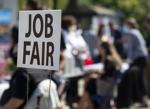Citing worker shortages in the state, Gov. Henry McMaster has asked that South Carolina stop participating in all federal pandemic-related unemployment programs, including weekly $300 payments that aren’t set to expire for several months.
The extra payments, new jobless benefit programs and extended timelines to receive the aid were started as lifelines for the millions of Americans put out of a job because of COVID-19.
Now, McMaster is arguing that the enhanced benefits are contributing to a lack of applicants for open work spots, especially in the hospitality sector.
“What was intended to be a short-term financial assistance for the vulnerable and displaced during the height of the pandemic has turned into a dangerous federal entitlement, incentivizing and paying workers to stay at home rather than encouraging them to return to the workplace,” McMaster said in a statement May 6.
More than 100,000 South Carolinians were receiving some kind of jobless aid as of the beginning of the month.
The governor’s directive will go into effect June 30.
South Carolina is the second state this week to announce it will be opting out of the programs.
Montana’s Republican Gov. Greg Gianforte made a similar announcement Tuesday, when he said the state would end expanded jobless benefits by June 27.
This change in South Carolina will affect six different programs that are currently in effect, according to a May 6 memo to McMaster from Dan Ellzey, executive director of the S.C. Department of Employment and Workforce. That includes the extra $300 being paid weekly to claimants through federal funds. The American Rescue Plan had extended those benefits until Sept. 6.
But, under McMaster’s ask, South Carolina will be ending that aid more than two months early.
Another program that’s given jobless benefits to workers who are self-employed or independent contractors — classifications that don’t typically qualify for the state’s unemployment checks — would also end in South Carolina. The state would stop paying out those benefits and wouldn’t process any new claims of that kind, Ellzey said in his letter.
More than 37,000 claimants received benefits through that program the week ending May 1, according to DEW.
Also, people who have exhausted their regular 20 weeks of unemployment benefits will no longer be eligible for payments, per the memo. One of the federal programs had tacked on an additional 51 weeks during which claimants could stay eligible for aid after the usual period was over.
South Carolina’s normal 20-week limit for aid is on the low end compared to other states. Most offer 26 weeks.
In a statement, Ellzey said he agreed with the governor’s move to end the programs, also noting a need for workers in the service sector.
“While the federal funds supported our unemployed workers during the peak of COVID-19, we fully agree that reemployment is the best recovery plan for South Carolinians and the economic health of the state,” Ellzey said. “Last week’s initial claims numbers were the lowest since the pandemic began, and employers around the state are eager to hire and anxious to get South Carolina back to business.”
For the week ending May 1, DEW reported 2,856 new claims.
Weekly claims in the state peaked at more than 87,600 last April.
We’re starting a weekly newsletter about the business stories that are shaping Charleston and South Carolina. Get ahead with us – it’s free.
About $5.2 million of a payout total of $63 million from the week ending May 1 was from regular unemployment, according to DEW data that’s updated weekly. More than half, about $37 million, was attributed to Federal Pandemic Unemployment Compensation, which provides the extra $300 benefit and would end next month per McMaster’s request.
These enhanced unemployment benefits came up earlier in the day May 6 in the Legislature, when senators debated a bill that would allow South Carolina taxpayers to exempt up to $10,200 in jobless payments they received in 2020 from their income tax returns due May 15. Tax filers who received the benefits wouldn’t have to pay taxes on that $10,200.
The bill would tie state tax law to the federal government’s changes, which the Legislature does regularly to make it easy for taxpayers and the accountants who prepare their returns.
Senate Majority Leader Shane Massey, R-Edgefield, said that, while he supports conforming to federal tax law and quickly settling the issue for tax filers, he “had a little bit of heartburn” about the bill because of what it would exempt.
“We were paying people more not to work, then we suspended the requirement they had to look for work, and now we’re going to forgive any income tax payments?” Massey asked.
The Senate ended up postponing a vote on the bill. The House approved the measure unanimously a month ago.
While work search requirements for the unemployed had been temporarily suspended in South Carolina, they’ve been back in place since April 18, meaning anyone currently receiving jobless aid has had to look for openings to keep qualifying for payments.
That’s a standard rule in South Carolina but had not been a requirement for about a year because of COVID-19 and a lack of available jobs earlier in the pandemic.
The department knows of 81,684 active job listings in the state, Ellzey said in his statement.
The leisure and hospitality sector, in particular, shed workers at a dramatic rate last spring, but, now, more than a year later, is struggling to staff up now that tourists have started to return.
While taking away these federal unemployment benefits is likely to “move the needle” for some claimants and prompt them to apply for work, this is “not a panacea,” said Laura Ullrich, a regional economist with the Federal Reserve Bank of Richmond.
These extra payments are “part of the calculation” for people considering a return to work, Ullrich said, but it’s not everything.
Issues with childcare, fear of contracting COVID-19 and other factors weigh into these decisions, too, she said.
Ullrich also noted that extra federal unemployment funds are likely only a deterrent for going back to work if a person’s job doesn’t pay well. A lot of workers can’t replace their pay with jobless benefits.
That’s more likely to be the case in a sectors tend to pay less, like leisure and hospitality.
While South Carolina and Montana are the only states so far to announce an early end to federal COVID unemployment programs, Ullrich said that, now that it’s been done, she “wouldn’t be surprised” if some other states follow suit.
Seanna Adcox contributed reporting.


